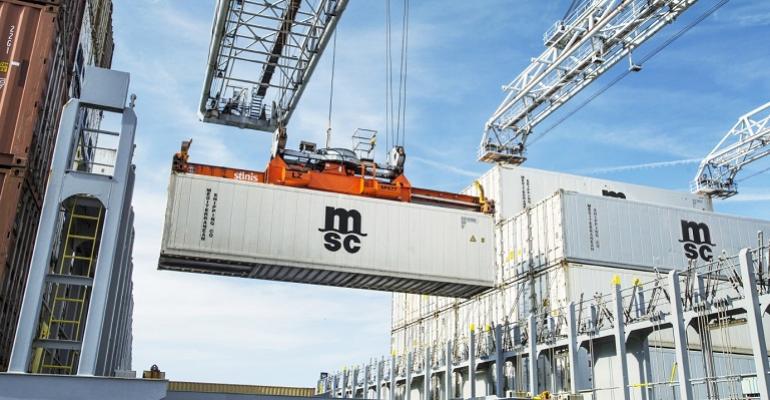The use of e-Bills of Lading has the potential to save the maritime industry billions of dollars, according to an estimate by the Digital Container Shipping Association (DCSA), as documents are exchanged digitally rather than by costly and slow postal services.
The digital process leads to shorter payment cycles and is more secure against fraud, forgery and human error, said MSC.
The Wave BL platform will be free to use in 2021 for exporters, importers and traders without the need for IT infrastructure investment or operational changes, said MSC.
Blockchain-based Wave BL uses distributed ledger technology to ensure secure handling of documents; the protocol has been approved by the International Group of Protection & Indemnity Clubs. Involved parties can issue, transfer, endorse and manage documents as well as issue all originals, negotiable or non-negotiable, and exchange them via a direct, encrypted, peer-to-peer transmission.
“MSC has chosen Wave BL because it is the only solution that mirrors the traditional paper-based process that the shipping and cargo transportation industry is used to,” said André Simha, Global Chief Digital & Information Officer at MSC. “It provides a digital alternative to all the possibilities available with traditional print documents, just much faster and more secure.”
The advantages of e-Bills of Lading over their paper counterparts have demonstrated throughout the COVID pandemic.
“The global pandemic has restricted human and transport mobility in many places,” said Simha. “Countless containers have been stuck at various ports, terminals, depots and warehouses around the world because the receiver doesn’t have the original paper Bill of Lading required to release these goods at their destination.”
Border restrictions and postal delays due to the pandemic were no issue for e-Bills of Lading, and while remote working may have caused problems getting appropriate documents to employees working from home, the e-Bills of Lading system can be accessed remotely.
“Traditionally, the shipping industry has relied quite heavily on physical paper documents. And among these, the Bill of Lading is the most important transport document in international trade,” states André Simha. “While there have been attempts to create an eBL solution in the past, we are now in a position to introduce a solution that can pave the way to mass eBL adoption, which will mean significant savings for the shipping industry.”
MSC has run pilot projects on e-Bills of Lading since 2019, and is considering using other platforms to meet market demands.
Copyright © 2024. All rights reserved. Seatrade, a trading name of Informa Markets (UK) Limited.
Add Seatrade Maritime News to your Google News feed.  |

